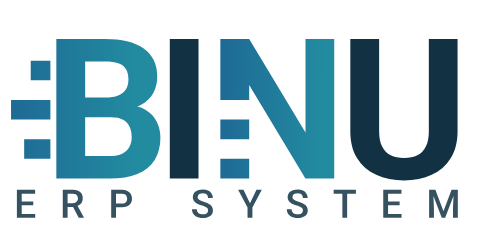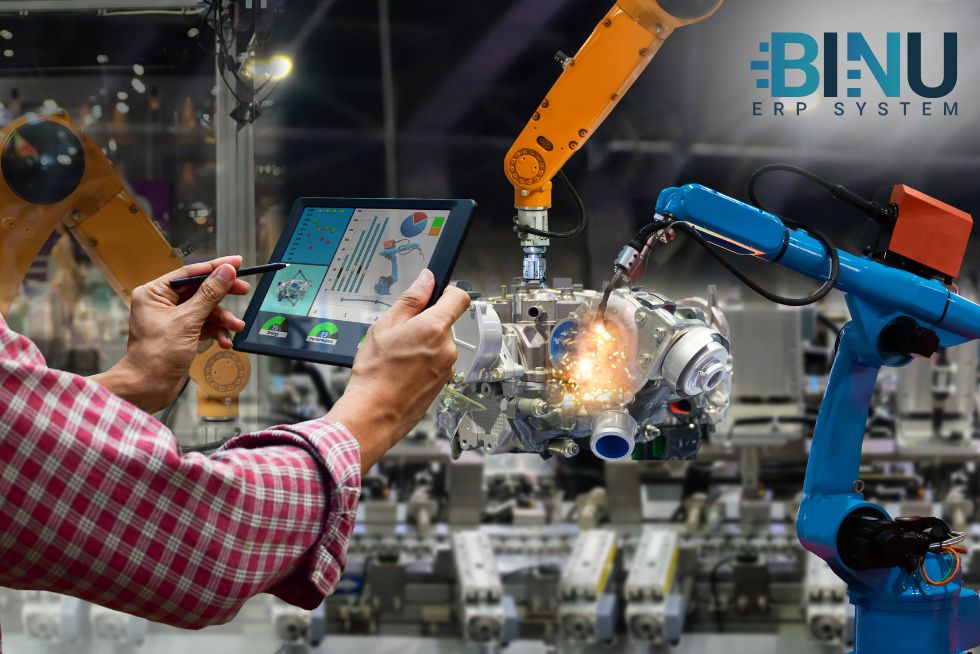Table of Contents
- Introduction
- Understanding Quality Control in Manufacturing
- How ERP Systems Enhance Quality Control
- Key Features of Binu ERP for Quality Control
- Enhancing Quality Metrics: Small Manufacturers’ ERP Journey
- Conclusion of article
- FAQs
1. Introduction
Quality control is vital for manufacturing success, ensuring consistent product quality while reducing costs and minimizing waste. Cloud-based ERP systems like Binu ERP are transforming how small manufacturers streamline quality control processes, integrate real-time data, and achieve operational excellence. This article delves into “The Role of ERP in Quality Control for Manufacturing,” showcasing how solutions like Binu ERP empower small manufacturers to achieve measurable success by integrating advanced quality control processes, real-time monitoring, and comprehensive data management.
2. Understanding Quality Control in Manufacturing
Quality control in manufacturing encompasses processes designed to ensure that products meet specified standards. From raw material inspection to final product testing, these processes ensure consistency, compliance, and customer satisfaction. However, manual methods often lead to inefficiencies, inaccuracies, and inconsistent results.
Modern ERP systems address these challenges by integrating quality control processes into a unified platform, streamlining operations, improving metrics such as defect rates, and enhancing overall accuracy.
3. How ERP Systems Enhance Quality Control
- Streamlined Data Management: ERP systems centralize data, providing manufacturers with a comprehensive view of their operations. This integration reduces the risk of errors caused by fragmented information and enhances decision-making. Metrics such as “first-pass yield” and “rework rates” improve as manufacturers have better visibility into their processes.
- Real-time Monitoring and Reporting: With ERP systems, manufacturers can monitor production in real time. This capability enables early detection of issues, minimizing defects and downtime. Systems like Binu ERP offer transparent reporting for each process, providing metrics like real-time defect detection rates and improving quality by addressing issues promptly.
- Integration of Quality Standards: ERP platforms ensure that quality standards are seamlessly integrated into every production stage. From procurement to delivery, these systems enforce compliance with industry regulations, reducing risks and maintaining brand reputation. ERP systems also track compliance metrics and provide audit trails for certification processes.
4. Key Features of Binu ERP for Quality Control
- Advanced Quality Control Processes: Binu ERP supports comprehensive QC protocols, ensuring that all items meet required standards before proceeding through the production chain. Its advanced isolator flow handles even the most complex QC cases while delivering measurable results like reduced rejection rates.
- Gantt Style Manufacturing Planning: Effective planning is crucial for quality control. Binu’s Gantt style planning enables manufacturers to visualize and optimize production schedules, ensuring tasks are completed on time and within specifications. This feature has shown improvements in on-time delivery metrics and resource allocation efficiency.
- Transparent Reporting and Cost Analysis: Transparent reporting provides detailed insights into every process. Advanced cost analysis tools allow businesses to monitor assembly costs, identify inefficiencies, and make data-driven decisions. For instance, manufacturers can track “cost per unit” and “scrap cost” metrics to optimize operations.
5. Enhancing Quality Metrics: Small Manufacturers’ ERP Journey
Case Study: Improved Metrics Through ERP Integration
XYZ Sugar Plant, a leader in the sugar industry, tackled production and procurement inefficiencies by implementing a tailored ERP system. The new system provided real-time insights into procurement and production processes, enabling the plant to negotiate better contracts and reduce raw material costs by 12%. Improved forecasting and data analytics aligned production with market demand, enhancing efficiency by 15%. Quality control measures were standardized, resulting in a 10% reduction in defects and higher customer satisfaction. Over two years, the ERP implementation delivered a 20% cost savings, validating the strategic investment.
6. Conclusion of article
Adopting ERP systems like Binu ERP revolutionizes quality control in manufacturing by centralizing data, enabling real-time monitoring, and integrating quality standards. These tools help reduce defects, improve delivery times, and cut costs, providing small manufacturers with a competitive edge and greater customer satisfaction. Investing in an ERP system is a strategic move for any manufacturer looking to optimize operations and ensure consistent product quality.
7. FAQs
- How do ERP systems improve quality control metrics?
ERP systems enhance quality control metrics such as defect rates, rework percentages, and on-time delivery by centralizing data, providing real-time monitoring, and integrating quality standards throughout the manufacturing process. - What makes Binu ERP ideal for quality control?
Binu ERP stands out with features like advanced QC protocols, Gantt style planning, and transparent reporting, which deliver measurable results like reduced rejection rates and improved operational efficiency. - Can small manufacturers benefit from ERP systems like Binu?
Absolutely! ERP systems like Binu are designed for scalability and cost-effectiveness, making them suitable for small manufacturers looking to improve quality control metrics and reduce operational costs. - Is Binu ERP suitable for industries other than manufacturing?
While optimized for manufacturing, Binu ERP is versatile and can be adapted for other industries such as R&D and distribution, ensuring quality control and compliance across various sectors. - How quickly can Binu ERP be implemented?
Binu ERP is designed for rapid deployment, minimizing setup time and allowing companies to see measurable improvements quickly. - Does Binu ERP support quality audits?
Yes, Binu ERP offers audit trails and compliance tracking to streamline certification processes. - Can ERP systems integrate with existing quality tools?
Yes, Binu ERP is designed for seamless integration, enhancing existing quality management systems. - Which industries have reported significant improvements with Binu ERP?
Industries such as automotive, electronics, and food manufacturing have seen substantial quality improvements by leveraging Binu ERP’s advanced quality control features.

